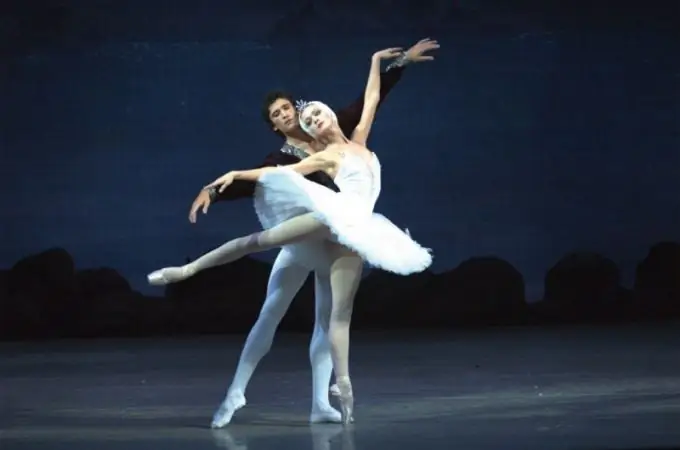Every connoisseur of beauty from childhood is familiar with Pyotr Ilyich Tchaikovsky's ballet "Swan Lake". Perhaps, in Russia there is no musical theater that was not involved in this production. The central part of Odette-Odile was danced by the most outstanding Russian ballerinas - Ekaterina Geltser and Matilda Kshesinskaya, Galina Ulanova and Maya Plisetskaya, Ekaterina Maksimova and Nadezhda Pavlova and many others. However, at first the fate of "Swan Lake" was far from cloudless.

The idea of staging the ballet "Swan Lake" belonged to the director of the Moscow Imperial troupe, Vladimir Petrovich Begichev. He invited Pyotr Ilyich Tchaikovsky as a composer.
The plot was based on an old German legend about the beautiful princess Odette, whom the evil sorcerer Rothbart turned into a white swan. In the ballet, the young Prince Siegfried falls in love with the beautiful swan girl Odette and vows to be faithful to her. However, the insidious Rothbart appears with his daughter Odile at the ball thrown by the Queen Mother in order for Siegfried to choose a bride for himself. The black swan Odile is a double and, at the same time, the opposite of Odette. Siegfried unwittingly falls under the spell of Odile and proposes to her. Realizing his mistake, the prince runs to the shore of the lake to ask forgiveness from the beautiful Odette … In the original version of the libretto, the tale turns into a tragedy: Siegfried and Odette die in the waves.
At first, Odette and Odile were completely different characters. But while working on the music for the ballet, Tchaikovsky decided that girls should be kind of doubles, which leads Siegfried to a tragic mistake. Then it was decided that the parts of Odette and Odile should be performed by the same ballerina.
First failures
Work on the score lasted from the spring of 1875 to April 10, 1876 (this is the date indicated in the score by the composer himself). However, rehearsals on the stage of the Bolshoi Theater began even before the completion of the composition of the music, on March 23, 1876. The first stage director of Swan Lake was the Czech choreographer Julius Wenzel Reisinger. However, the performance, which premiered on February 20, 1877, was not successful and, after 27 performances, left the stage.
In 1880 or 1882, the Belgian choreographer Josef Hansen decided to resume the production. Despite the fact that Hansen slightly changed the dance scenes, in fact, the new version of Swan Lake was not much different from the old one. As a result, the ballet was shown only 11 times and, it would seem, forever disappeared into oblivion and oblivion.
The birth of a legend
On October 6, 1893, without waiting for the triumph of his creation, Pyotr Ilyich Tchaikovsky died in St. Petersburg. In memory of him, the St. Petersburg Imperial troupe decided to give a grandiose concert, consisting of fragments from various works by the composer, including the second act of the unsuccessful ballet Swan Lake. However, the chief choreographer of the theater, Marius Petipa, did not undertake the production of scenes from the deliberately failed ballet. Then this work was entrusted to his assistant Lev Ivanov.
Ivanov brilliantly coped with the task assigned to him. It was he who managed to turn "Swan Lake" into a legend. Ivanov gave the second act of the ballet a romantic sound. In addition, the choreographer decided on a revolutionary step for that time: he removed artificial wings from the costumes of swans and made the movements of their hands resemble the flapping of wings. At the same time, the famous "Dance of the Little Swans" appeared.
Lev Ivanov's work made a strong impression on Marius Petipa, and he invited the choreographer to stage the full version of the ballet together. For the new edition of Swan Lake, it was decided to revise the libretto. This work was entrusted to Modest Ilyich Tchaikovsky. However, the changes in the content of the ballet were not significant, and the finale remained tragic.
On January 15, 1895, the premiere of the new version of the ballet Swan Lake took place on the stage of the Mariinsky Theater in St. Petersburg. This time, the production was a triumphant success. It was Petipa-Ivanov's version that began to be considered a classic and, to this day, is the basis of all productions of Swan Lake.
Today "Swan Lake" is considered a symbol of classical ballet and does not leave the stage of the leading theaters of Russia and the world. It should also be noted that most modern ballet productions have a happy ending. And this is not surprising: "Swan Lake" is a wonderful fairy tale, and fairy tales should end well.






